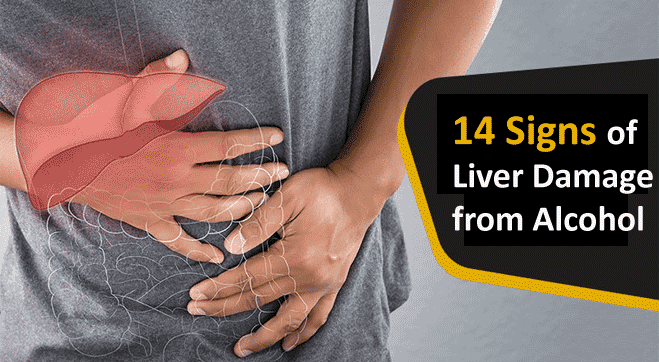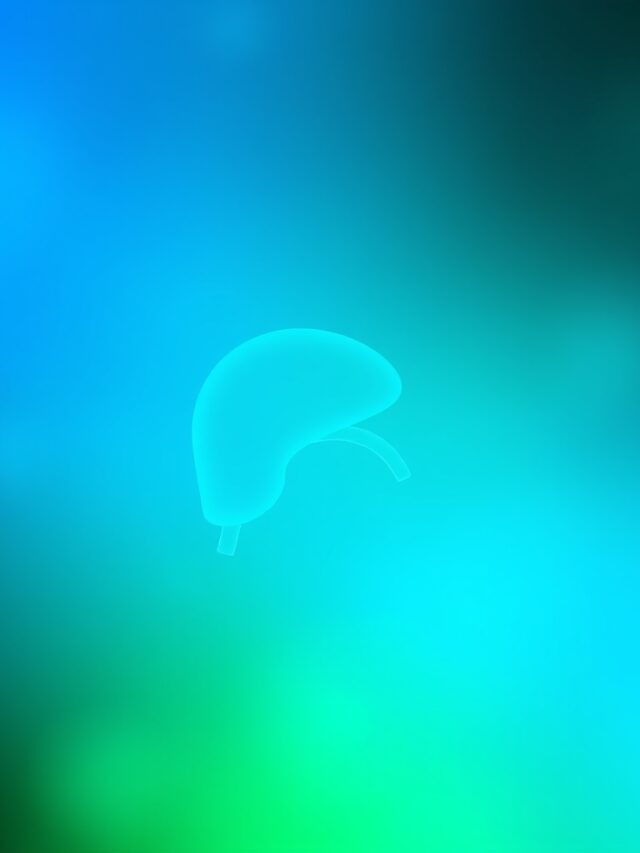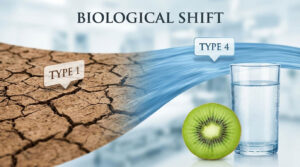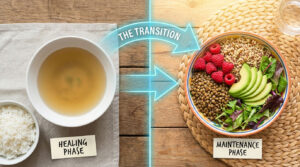Alcohol, when consumed in healthy amounts, may be good for your heart up to some extent. However, overconsumption of it can do more harm than good. 1
Likewise, liver damage due to alcohol consumption is a common problem worldwide.
The worst part is that the signs of severe liver damage from alcohol consumption are almost unnoticeable in the beginning. However, when they do become visible, they generally include nausea, vomiting, stomach pain, sudden weight loss or gain, mood swings, sleeping problems, and more. Additionally, liver damage can manifest through various skin-related symptoms, such as jaundice, itching, and rashes. To learn more about the skin signs of liver damage and their underlying causes, visit our detailed guide: What Are the Skin Signs of Liver Damage?.
Do You Know?
- In 2015, out of the 2 million deaths that happened globally because of liver or liver-related issues, 18.3% of them had end-stage liver disease as the primary reason. 2
- Moreover, liver damage due to alcohol that results in alcoholic liver disease is the most prevalent in European countries.
- Research has shown that drinking 30 to 50 grams of alcohol daily over a span of 5 years increases the risk of alcoholic liver damage. 3
So, if you frequently consume alcohol, taking a liver panel test can help you determine if your liver is experiencing any damage.
How Does Alcohol Affect the Liver?
The liver plays a crucial role in acting against all the unhealthy food and drink items that you consume. That is why it is more vulnerable to being damaged by alcohol.
When you don’t keep a track record of the quantity of alcohol that you are having on an everyday basis, it becomes a threat to your liver health.
Likewise, prolonged consumption of abnormally high levels of alcohol can eventually give birth to alcoholic liver diseases.
Most Ignored 14 Signs of Liver Damage From Alcohol
Nausea, vomiting, loss of appetite, sudden weight loss or sudden weight gain, stomach pain, body weakness and an increased urge to urinate or drink water are some early signs of liver damage from alcohol.
Apart from these, there are many other signs of alcoholic liver damage that might not appear immediately but eventually.
Here is a brief description of 14 signs of liver damage from alcohol.
1. Nausea
One of the most common (and usually the most neglected) symptoms of liver damage due to alcohol is nausea. Nausea makes you feel uneasy, sick and uncomfortable. It is the feeling that you have before you are about to vomit. 4
The processing of alcohol in your body results in the production of acetaldehyde. It is the main substance responsible for nausea (after drinking alcohol) along with several other symptoms, including:
- Increased heart rate (or fast pulse)
- Sweating 5
2. Vomiting
Vomiting is another common sign of liver damage from alcohol. When you drink alcohol in amounts that your body cannot efficiently process, it will try to expel the excess alcohol from your system by means of vomiting.
Vomiting also comes with a lot of adverse effects, including:
- Dehydration
- Low blood pressure
- Faster heartbeat 6
Drinking too much alcohol over a short period of time also increases the risk of alcohol poisoning.
3. Stomach ache (Abdominal Pain)
Since your liver is located near your stomach and your small intestine, pain in the liver often comes out disguised as a stomach ache or abdominal pain. It usually happens because of liver damage or inflammation in the surrounding tissues. 7
Abdominal pain that happens as an after-effect of alcohol on liver is called alcoholic hepatitis. 8
4. Loss of Appetite
While not all the time, alcohol overconsumption can result from a combination of reasons ranging from anxiety to depression. Since stress has a direct negative effect on your eating habits, you might experience a loss of appetite.
Physiologically, alcohol-related loss of appetite happens because there is a gradual and temporary decrease in your blood sugar levels. Moreover, drinking a lot of alcohol can make you feel more full and less hungry. Thus, loss of appetite is a common sign of liver damage from alcohol. 9
5. Weight Loss
Research studies have concluded that people with liver disease often experience severe weight loss due to malnutrition.
Weight loss, therefore a common sign of liver damage that affects all individuals, regardless of—
- Age
- Sex (Gender)
- Schooling
- Income 10
For regular alcohol consumers, weight loss is one of the most negative effects of alcohol on liver. Since nutrition and your eating habits play a crucial role in deciding your weight, neglecting your health because of alcohol overuse results in the following problems:
5.1. Loss of Appetite
Loss of appetite is a common sign of alcoholic liver damage, which can progress to alcoholic hepatitis and liver cirrhosis.
5.2. Lack of Healthy Nutrients in the Body
People who drink a lot of alcohol often prefer food items high in:
- Carbohydrates
- Added salts
- Saturated fats
- More added sugars
While these can make you feel full sooner, they don’t give your body healthy nutrients.
5.3. Low Blood Sugar (Hypoglycaemia)
Bad eating habits and alcohol together also contribute to bringing down your blood sugar levels. Excess alcohol in your body makes it hard for your liver to produce glucose and release it into your blood.
As a result, you might experience low blood sugar. It is one of the major causes of alcoholic liver damage.
5.4. Digestive Problems
When there is an excess amount of alcohol in the body, the main organs responsible for digestion, such as the food pipe, the stomach, and the intestines, can suffer from inflammation.
Inflammation of these organs makes it difficult for your body to process the food that it intakes as efficiently as before. Because of this, you can suffer from weight loss.
6. Weight Gain
Loss of appetite and weight loss are two of the most common signs of liver damage from alcohol. On the contrary, for some people, it can also cause extreme weight gain.
Alcohol-related weight gain happens because of the following reasons:
- A heavy drinker’s capacity to burn fat gets compromised. As a result, the food that you eat metabolises slowly, leading to weight gain.
- Alcohol can also increase your hunger. After drinking too much of it, you might also crave unhealthy food items containing a lot of calories, salt and fat.
Therefore, while weight gain up to some extent is okay, more of it can lead to obesity.
Obesity is a major risk factor for liver damage due to alcohol. In fact, not just alcoholic liver damage, extreme weight can also give rise to a wide variety of complications.
Here are a few examples:
- High blood pressure (Hypertension)
- Insulin resistance (can lead to diabetes)
- Heart disease
- Heart Stroke
- Cancer
7. Increased Thirst
As already mentioned above, vomiting is one of the most prominent signs of liver damage from alcohol. Apart from this, alcohol also works like a diuretic in your body.
Diuretic substances are those substances that help you get rid of excess fluids from your body. In simpler terms, alcohol increases your urgency to go to the bathroom. Frequent urination is a common symptom, which can lead to dehydration and increased thirst as the body tries to replenish lost fluids.
Increased thirst can also produce additional symptoms, such as—
- Dehydration
- Dizziness
- Lightheadedness 11
8. Weakness
Nausea, vomiting, loss of appetite, weight loss and dehydration are signs of liver damage from alcohol that can ultimately lead to body weakness.
Extreme alcohol consumption can also make your blood sugar levels drop significantly. In some cases, it can lead to hypoglycaemia (the medical term for low blood sugar levels).
All of these factors can leave you feeling more—
- Week
- Tired
- Shaky
9. Confusion
Alcohol not only affects your body but also your brain. Likewise, the above-mentioned signs and symptoms of liver damage from alcohol have the potential to make your body more vulnerable and susceptible to additional problems, such as:
- Lack of focus
- Compromised memory
- Frequent headaches
10. Disruption of Sleeping Schedule
Sedatives are substances that make you fall asleep faster, and alcohol acts as a sedative in your body. While this might seem like a positive effect, it is actually a negative one, especially concerning liver health.
That is why disruption of the sleeping schedule is one of the most dangerous signs of liver damage from alcohol.
Sleep affects everything, from the way you function in your day-to-day life to how well you can achieve your goals. Having an unhealthy sleeping schedule, therefore, can be a long-term threat.
Here is how liver damage due to alcohol can affect your sleeping patterns:
- Consuming too much alcohol before bed can make you fall asleep faster. Even though you can have a good sleep after drinking alcohol, it is not long-lasting or peaceful. So, when you wake up, you will still feel tired and restless.
- Sleeping early makes you wake up early. Hence, it brings a change in your sleeping patterns 12
11. Mood Swings
The signs of liver damage from alcohol that are mentioned above can give rise to a lot of additional issues. Examples include:
- Abdominal pain
- Organ inflammation
- Dehydration
- Lack of sleep and many more
These problems can make you feel sick and moody. As a result, you might feel more irritated, anxious, depressed or angry.
12. Fainting
Fainting is one of the most obvious signs of liver damage from alcohol. Since alcohol disrupts your immune response and has many negative effects on your sleep, it can make you feel sick to the extent that you cannot take it anymore. It ultimately makes you faint due to dizziness and hangovers.
13. Fever
Alcoholic hepatitis is one of the most severe effects of alcohol on liver. It signals liver damage by causing inflammation and swelling after drinking alcohol heavily over the span of many years. A low-grade fever is a sign of alcoholic hepatitis.
14. Eye Colour Changes
Long-term use of alcohol can make your eye colour (the white part of your eye) change to a pale yellowish colour. It can also result in jaundice, a sign of liver damage from alcohol (in the case of alcoholic hepatitis).
Therefore, if you do not notice any of the above symptoms, it is a sign of healthy liver. However, if any of these signs persist for longer or cause problems in your day-to-day life, you can take an LFT profile test. It is a liver function test that lets you know what steps to take next.
Remember that it is essential to repair the liver damage from alcohol on time so that things don’t get worse.
Stages of Alcohol-Related Liver Disease (ARLD)
Alcohol-related liver disease is one of the most severe adverse effects of alcohol on liver. It results in liver damage because of the swelling and inflammation that come from heavily drinking alcohol over a span of many years.
ARLD progresses in the following 3 stages:
1. Alcoholic Fatty Liver Disease
The fat that comes from alcohol slowly gets collected near the liver. The deposition of this fat around the liver gives birth to alcoholic fatty liver disease. It is the initial stage of alcohol-related liver disease. The best way to treat it is to stop drinking alcohol.
2. Acute Alcoholic Hepatitis
As already mentioned, the swelling of the liver because of alcohol abuse is called alcoholic hepatitis.
While alcoholic fatty liver disease is not a very serious condition, alcoholic hepatitis has one of the most devastating effects of alcohol on liver.
The good news is that it is possible to repair the liver damage that comes from alcoholic hepatitis with the right medical treatment. However, in extreme cases, it can cause liver failure.
3. Liver Cirrhosis
Liver cirrhosis is the end stage of alcohol-related liver disease. It happens in the case of someone who has been drinking alcohol in heavy quantities over a very long period of time. The liver gets so damaged that it no longer responds to treatment or medicine. Liver cirrhosis ultimately results in liver failure. 13
Can You Repair Liver Damage from Alcohol?
Yes, your liver has a remarkably good regenerative capacity. Once you bring down your alcohol consumption, the liver damage from alcohol can be repaired effectively (in the case of mild to moderate drinkers).
Even if you are a heavy drinker, timely treatment can help to eliminate the negative effects of alcohol on your liver. 14
How To Repair Liver Damage from Alcohol?
Here are 2 ways in which you can repair liver damage from alcohol:
- Minimise and gradually stop drinking alcohol: The first and foremost step towards good liver health is to stop drinking alcohol. Remember that immediate withdrawal will result in certain side effects, but gradually lowering the quantity of your intake can be beneficial for your long-term health. 15
- Have a healthy and balanced diet: Consuming a mediterranean diet has shown positive effects in repairing the damage to the liver because of alcohol. Other food items like nuts, fish and tea also work well.
These are some home remedies that you can adopt to repair liver damage from alcohol. But if your symptoms don’t go away with these, you can book a full body checkup at home to get expert advice on what steps to take next.
Signs Your Liver Is Healing from Alcohol
Here are a few signs that your liver is healing and recovering—
- Increased energy
- Better mental clarity
- Enhanced focus
- No confusion
- Improved digestion
- Better skin health 16
- Better appetite
- No apparent weight fluctuations
Excessive alcohol consumption can lead to severe liver damage, presenting various symptoms such as nausea, vomiting, weight fluctuations, and more. Recognising these signs early can prevent further complications and aid in timely intervention.
The liver has a remarkable ability to regenerate, and by reducing alcohol intake and adopting a healthy lifestyle, you can support liver healing and overall well-being. Remember to consult healthcare professionals for personalised advice and regular check-ups to monitor your liver health. Prioritise your liver health today to ensure a healthier tomorrow.
Sources
Ref Links:
- Alcohol and Health: The Good, the Bad, and the Ugly
- Epidemiology of Liver Diseases in India
- Alcoholic Liver Disease
- Nausea
- Hangover
- Alcohol poisoning symptoms causes
- Liver Pain
- Alcoholic hepatitis
- Alcohol Use Disorder: Nutrition During Recovery
- Weight loss during cirrhosis is related to the etiology of liver disease
- How alcohol affects your health
- Alcohol and the Sleeping Brain
- Alcohol-Related Liver Disease
- Natural Recovery by the Liver and Other Organs after Chronic Alcohol Use
- How Long Does It Take Your Liver to Detox From Alcohol
- 7 Signs Your Liver Is Healing









